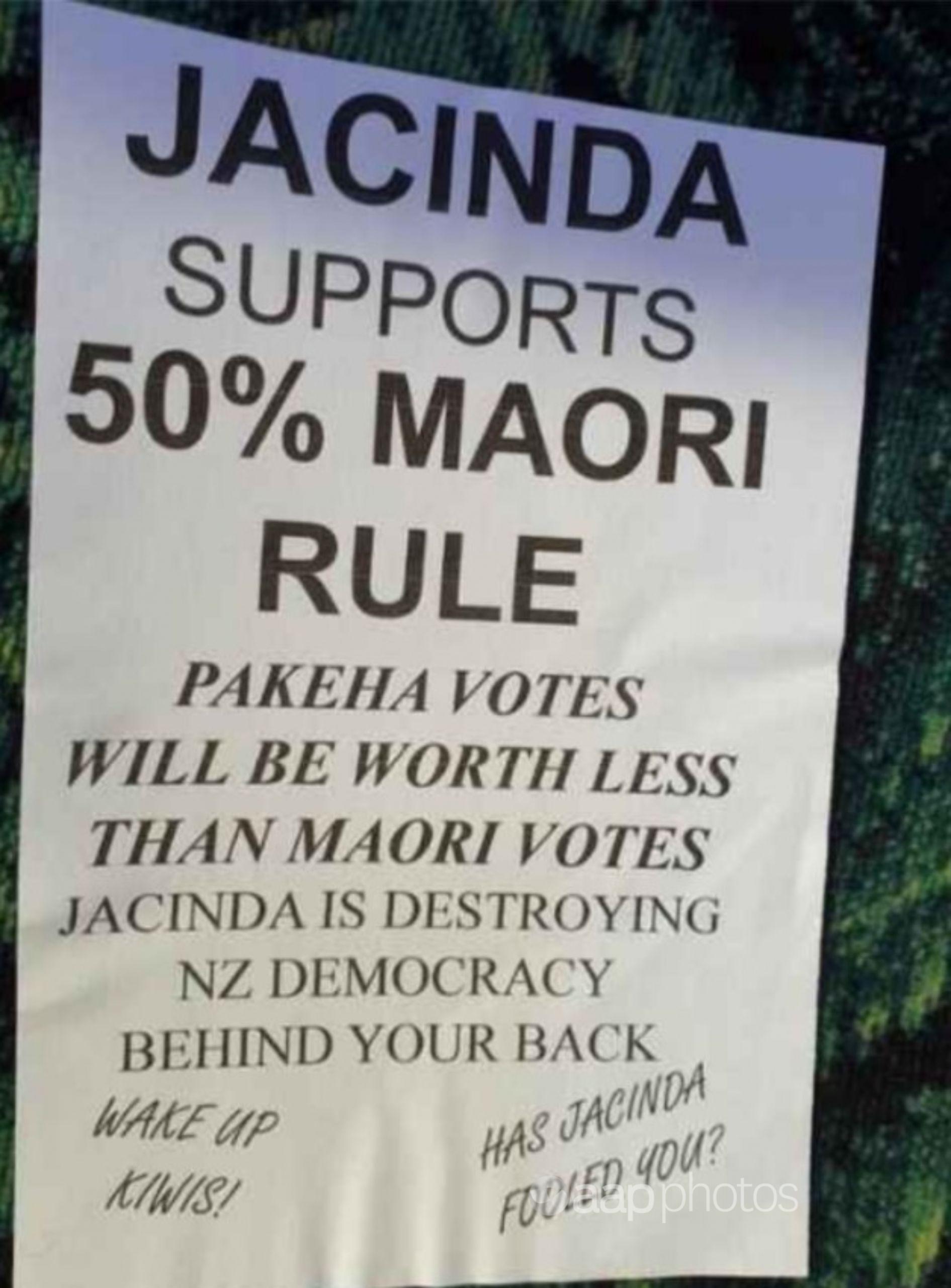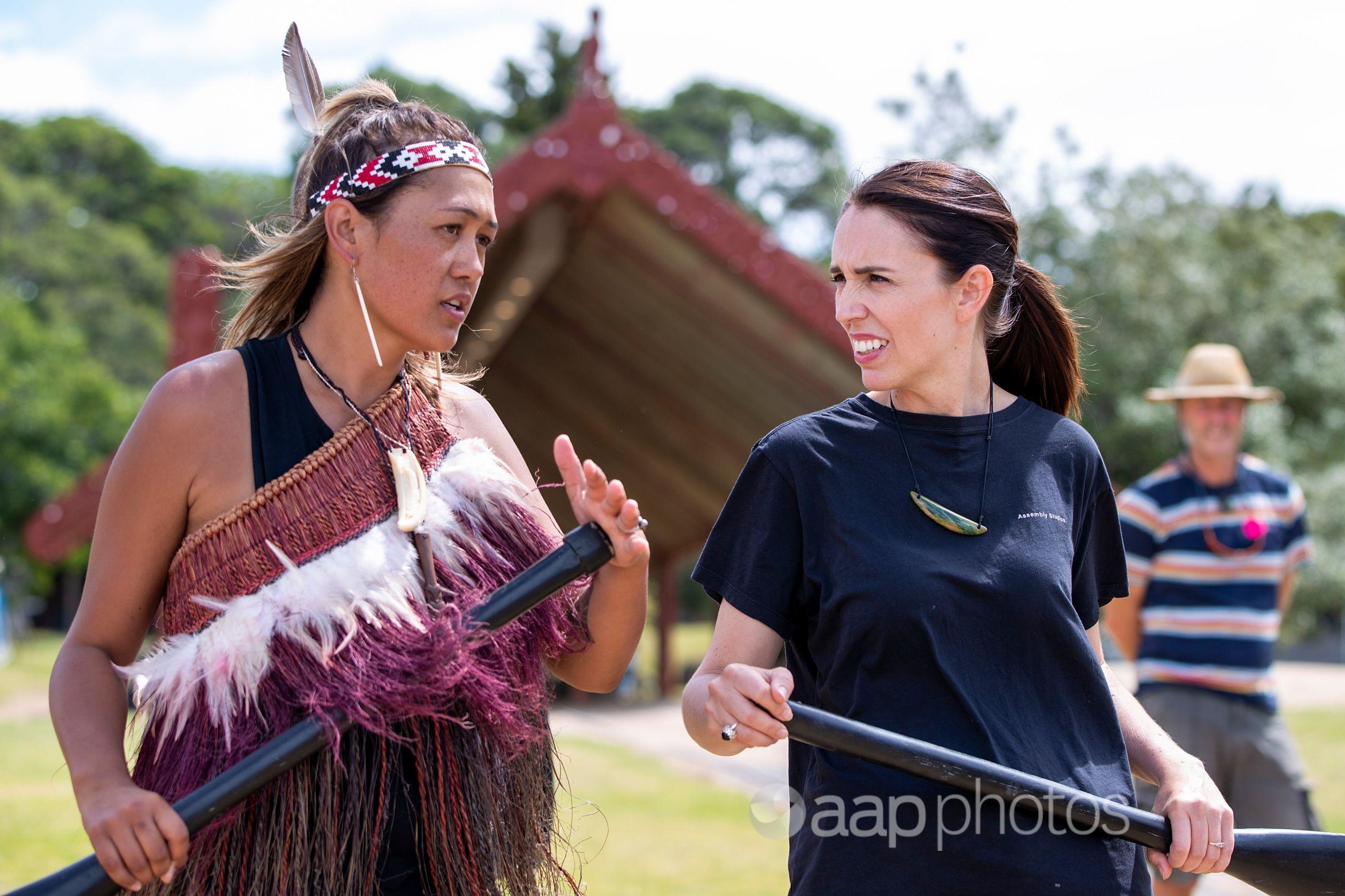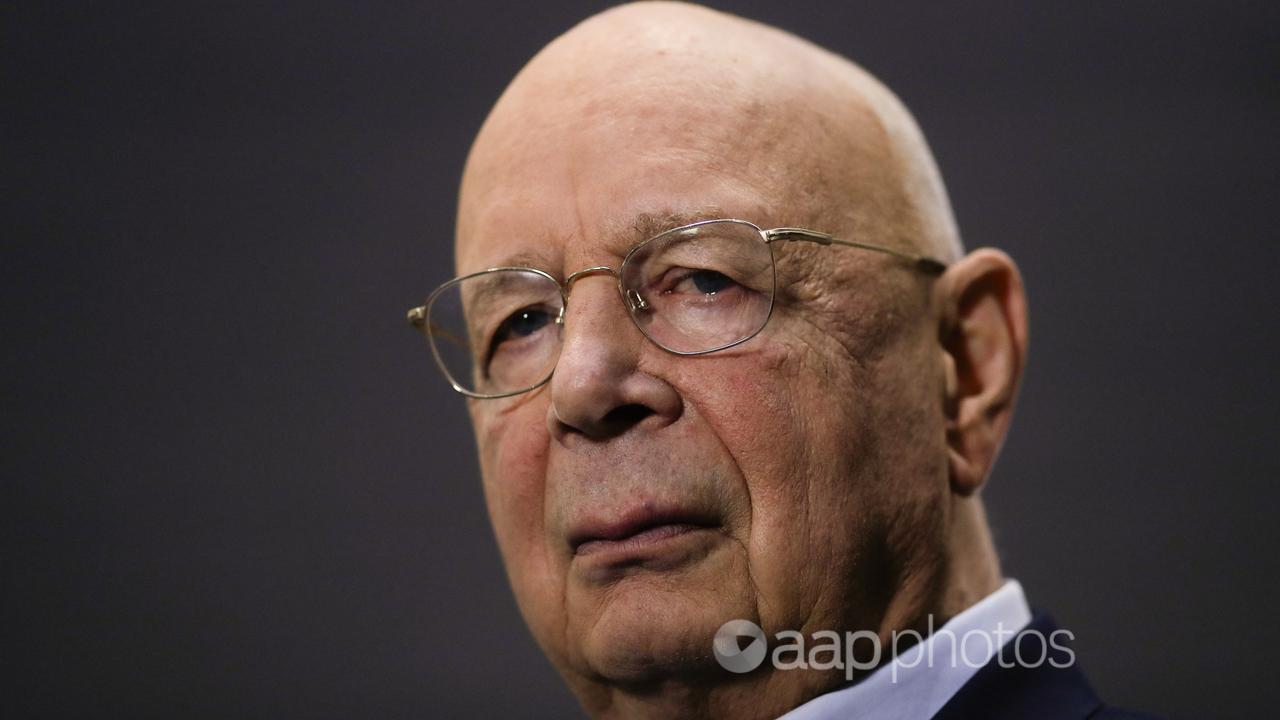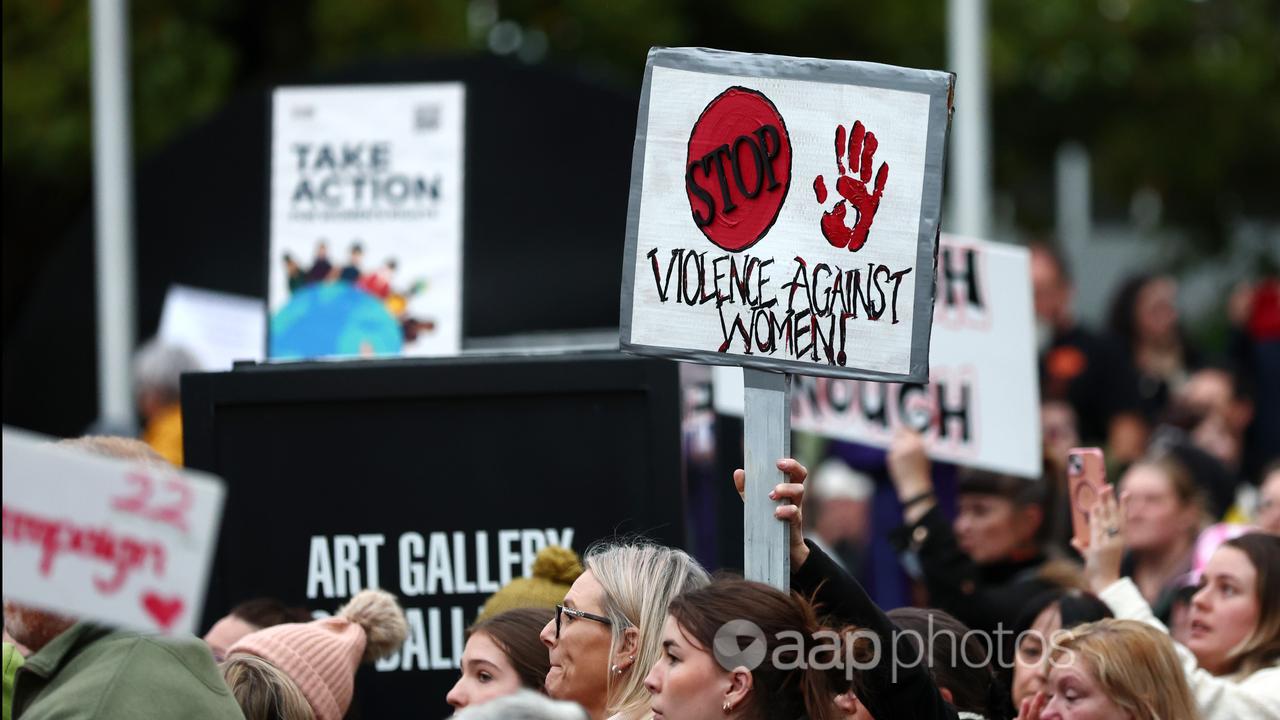The Statement
A Facebook post includes claims that New Zealand Prime Minister Jacinda Ardern supports 50 per cent Maori rule – and that non-Maori (Pakeha) votes will be devalued in the country.
The suggestion is made in a flyer, an image of which appears in the June 1 post. The image is a screenshot from a Newshub article published the same day with the headline, “Auckland Transport takes action over conspiracy flyer on Auckland bus.”
The full text of the flyer reads: “Jacinda supports 50% Maori rule. Pakeha votes will be worth less than Maori votes. Jacinda is destroying NZ democracy behind your back. Wake up Kiwis! Has Jacinda fooled you?”

The Analysis
The flyer photo was posted a month after New Zealand’s main opposition party, National, revealed the full text of a report into Maori self-determination, entitled He Puapua, which had been released under the Official Information Act.
The report sets out a plan for how New Zealand can realise by 2040 its obligations under the UN Declaration on the Rights of Indigenous Peoples. The then National government announced its support for the UN declaration in April 2010 after New Zealand and three other countries – Australia, the United States and Canada – initially voted against its adoption.
The declaration recognises the rights of indigenous people to self-determination, and to autonomy in their own affairs. It provides a set of international human rights standards that apply to New Zealand’s Treaty of Waitangi, a constitutional document co-signed by the British Crown and Maori chiefs in 1840 that established the relationship between the Crown and indigenous people.
He Puapua was compiled by a working group of non-government members and government officials in 2019, however the report was not released publicly and did not garner significant media attention until National Party leader Judith Collins highlighted its contents at a party conference in Auckland on May 1.
Ms Collins identified that the report raised the creation of separate Maori parliament or upper house, which she claimed would be able to veto decisions of the existing New Zealand parliament.
Alongside increased protection for Maori seats in parliament, the report said “further options could be explored … including the creation of a senate or upper house in Parliament that could scrutinise legislation for compliance with (the Treaty of Waitangi) and/or the (UN) declaration” (page 47).
“Various models for the composition of such a body could include a partnership model (with 50/50 rangatiratanga (self-determined) and kawanatanga (government representation),” it said.
The report also suggests “an avenue for constitutional dialogue … to consider a range of constitutional matters, including new governance institutions (e.g. Upper House, Maori parliaments)” (page 38).
Under existing New Zealand election rules, Maori voters can choose between the Maori and general electoral rolls when casting their ballots for seats in the national parliament’s single chamber, the House of Representatives. Those on the Maori roll vote for candidates in designated Maori electorates.
Following the airing of He Puapua, Ms Ardern ruled out establishing a Maori parliament although she declined to comment on all of the report’s recommendations. She previously told parliament the government had “no intention” of making the constitutional change.
Ms Ardern also defended not releasing the report “because of a concern that it would be misconstrued as government policy”.
She added the report had not gone to Cabinet, did not represent a government program nor had it been endorsed by the Labor government.
While the flyer in the Facebook post does not mention He Puapua, it echoes some of the concerns raised by Ms Collins based on the report, including “two systems for everything”.
A spokeswoman for Ms Ardern told AAP FactCheck in an email the claims that the prime minister supported 50 per cent Maori rule or devaluing the non-Maori votes were not true.
Experts said nothing in the report or Ms Ardern’s comments indicate support for “50 per cent Maori rule”, as claimed.
Professor Andrew Geddis, who lectures on law and the democratic process at Otago University in Dunedin, said the prime minister had not indicated support for the idea – and the report did not propose it. He is married to law professor Jacinta Ruru, one of the He Puapua report’s authors.
“The current PM’s support for (the declaration’s) requirements appears to be no more nor less than those of the preceding PM’s from the National Party,” Prof Geddis said in an email.
“The report includes a set of possible responses to the (declaration’s) recognition of ongoing indigenous people’s rights to self-determination.
“The basic thrust of those responses is that if this right is to be given real meaning, then it has to include an equal Maori voice on some matters that directly affect their interests.
“But this in no way equates to ’50 per cent Maori rule’ over everything, any more than does some partnership arrangement between central and local government means that the people of a local area will get ’50 per cent rule’ over all the decisions taken in relation to all matters.”
On the claim that non-Maori votes will be devalued, Prof Geddis said there had been no proposals put forward to alter the make-up or system of election to the House of Representatives.
“Any arrangements for self-determination would be additional to our current parliament,” he said.
David Williams, professor emeritus and honorary research fellow in the Faculty of Law at Auckland University, told AAP FactCheck in a phone interview that there were almost no suggestions in the report that had not been put forward previously.
The difference in the case of He Puapua was the goal of meeting New Zealand’s obligations under the UN declaration, Dr Williams said.
“There have been Maori calls for constitutional reform very frequently for the last 50 years. And they usually get put in the too-hard basket. I suspect He Puapua is in the too-hard basket as well.
“In terms of the slogan, ‘Jacinda supports 50 per cent Maori rule’, what the present government has put forward is that there are certain areas – such as Maori health, and that one in particular – where a different model of delivery of government services should give more weight to ‘by Maori, for Maori’ type of arrangements.
“What I heard the PM and other ministers say in the house is that this is not segregation, it’s not apartheid, this is (Treaty of Waitangi) partnership. And how the treaty partnership works out in one sector or another will vary, but that’s got nothing to do with the weighting of Pakeha votes.”
The Verdict
There is no evidence to support the claim that New Zealand Prime Minister Jacinda Ardern is in favour of “50 per cent Maori rule” or devaluing Maori votes.
While the He Puapua report mentions the potential creation of a Maori parliament or upper house with 50 per cent Maori representation, experts said it does not propose changes to the House of Representatives – which would be the only way to alter the weighting of votes. Ms Ardern has repeatedly ruled out constitutional changes such as the introduction of a Maori parliament.
False – Content that has no basis in fact.
* AAP FactCheck is an accredited member of the International Fact-Checking Network. To keep up with our latest fact checks, follow us on Facebook and Twitter.
All information, text and images included on the AAP Websites is for personal use only and may not be re-written, copied, re-sold or re-distributed, framed, linked, shared onto social media or otherwise used whether for compensation of any kind or not, unless you have the prior written permission of AAP. For more information, please refer to our standard terms and conditions.


















